It was the winter of 2011, and Rabbi Shmulik Gurary was driving up and down the streets of suburban Baltimore looking for a sign. The young rabbi, an Israeli native, was scouring the city in search of Israeli locals with plans to establish a Chabad house for this niche. Though the supposed community was sizable in number, he did not have a single address or name to begin with. As he turned a corner during his meandering drive, he spotted a moving truck emblazoned with the name “Orly Moving.”
“That’s got to be an Israeli,” the rabbi thought to himself. He parked his rental car, walked up, and knocked on the front door. Yair Shalem, owner of the truck and the moving company, opened the door to find a black-hatted rabbi with a beard smiling back at him.
“I thought he must be from the Orthodox community and was soliciting a donation,” admits Shalem. But Gurary assured him in fluent Hebrew that he was not looking for any money. Excited to finally meet his first Israeli, the rabbi laid out his big plans to move to the city and establish a community for the 2,000 or more Israeli Jews in the Baltimore area.
Shalem, who had been quietly managing his moving company in the city since 1992 and knew the lay of the land, did not want to get the earnest rabbi’s hopes up. “I told him point blank that he had come to the wrong place,” Shalem recalls. “A few people had tried to start something in the past and had failed. It’s very hard to get anything going in Baltimore and I advised him not to come.” The two exchanged pleasantries and parted ways.
A few weeks later Shalem received a phone call from Gurary. “We are moving to town!”
At first, Gurary found Shalem’s skepticism not without merit. The beginning years were very tough, as Shmulik and his wife Chaya knocked on doors and visited malls searching for hints of the tell-tale Israeli accent and anyone they could invite for Shabbat dinner. It was painstaking, but soon a weekly minyan formed in a side room of the rabbi’s home. Israelis started reaching out as Passover was nearing, looking for a Seder meal in their native tongue, and then, during the High Holidays, a Yom Kippur service that didn’t need to be translated.
Word-of-mouth spread, and Rabbi Gurary found himself conducting life-cycle events, leading classes, and hosting as many as thirty guests on Friday night for a warm Shabbat meal with familiar Israeli-style dishes. In 2013, they secured their first synagogue building. This past Lag BaOmer, 250 people attended a bonfire event.
A few years ago, the now thriving Israeli community threw their beloved rabbi a surprise birthday bash. Shalem, the first contact Gurary ever made and by then an active community member and close family friend, got up to speak.
“Rabbi, I thank G-d every day that you did not listen to me. I have never been happier to be wrong!”
A Growing Demographic
The Chabad Israeli Center of Baltimore is one of twenty-two exclusively Hebrew-speaking Chabad centers across North America. While official government estimates of the number of Israelis residing abroad vary greatly due to the lack of an adequate recording system, estimates count more than half a million Israeli-Americans living in the U.S. and around 40,000 in Toronto. Israelis are attracted to North American cities for financial and academic reasons, international politics, or just a desire to live a “better” life in the comforts of America. Some tourists come for a few days, fall in love with the more low-key life, and stay for years. In 1990, the first Chabad Israeli Community Center opened in Toronto to serve a large community that did not quite fit in elsewhere.
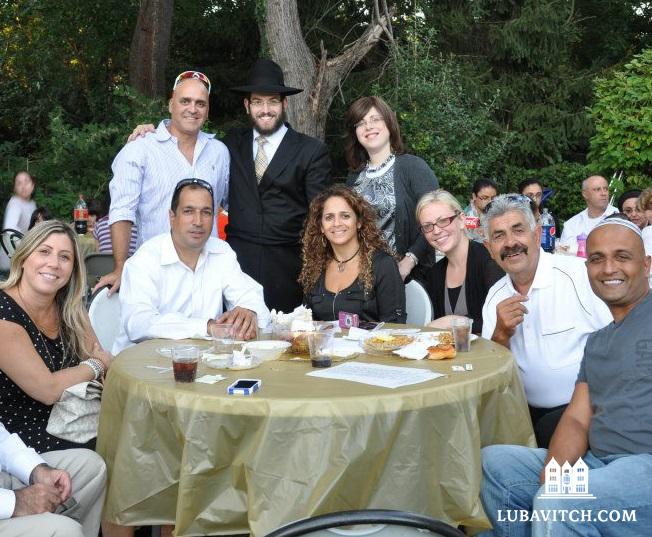
But long before the Israeli-specific centers opened their doors, Chabad Houses around the globe have nurtured and welcomed Israeli expats. It would be difficult to find a single Chabad house around the world that does not have at least a few Israeli members. In 1976, the Lubavitcher Rebbe recognized the distinct needs of what he titled the “Dovrei Ivrit” or “Hebrew-speaking” community. He instructed leaders of the popular “Release Time” program, who taught New York City public school children Torah once a week, to establish a separate program conducted in the holy tongue specifically for Hebrew-speaking children.
As the hub of American Jewry and American commerce, New York City naturally attracts the largest population of Israelis in the United States and boasts dozens of Israeli community centers and niche programming for the largely self-sustaining community. Chabad also contributes to the city scene, with a thriving Chabad Israel Center on the Upper East Side which hosts a populous synagogue, young professionals division, and preschool.
But staying connected as an Israeli in New York City is a relatively simple task. Once Israelis venture beyond the five boroughs into the wide expanse of America and Canada, the real challenges arise.
Searching for Identity
Marvin Wolfe is a successful investment banker based in Chicago who specializes in Far East trading. Although he was born and raised in America, he spent a few years in Israel and fell in love with the culture and identity. His wife, Nira, is Israeli and though she has lived in Chicago for many years, she hasn’t lost her Israeli accent or her love for her native culture.
“In Israel, we all felt Jewish doing nothing,” Wolfe explains. “Our daily newspapers had the Jewish calendar date printed at the top before the secular date. The country shut down on Yom Kippur. TV and billboards advertised each upcoming Jewish holiday—it is just in the air all around you.”
Though most Jewish Israelis are not religious, 80 percent of the Israeli student population attending a secular public school will still study Torah and receive Jewish studies enrichment together with their general studies curriculum. “The children receive a sense of Jewish values and traditions,” Wolfe continues. “They may not perform a single mitzvah at home, but they can place Jewish rituals in a pattern based on Jewish culture and peoplehood.”
When they moved to Chicago, Marvin and Nira’s social circle was made up mostly of Israelis. The couple wanted to connect to their Judaism in a tangible way, fearing that immersion in American culture might cause their children to lose their Jewish identity. During their frequent trips to Hong Kong, they sought out Chabad. Back in Chicago, Marvin remained a board member of a Conservative synagogue but eventually found the Chabad Israeli Center of Chicago and he and his wife were delighted by the warm, Israeli-friendly community similar to the one they loved in Hong Kong. They became active and invested in their children’s Jewish education. Their friends, they reflect, were not aware of the consequences of failing to make Jewish identity a priority, confident that their “Israeli-ness” would be enough. Wolfe laments that today, without exception, every one of their Israeli friends has at least one child who intermarried.
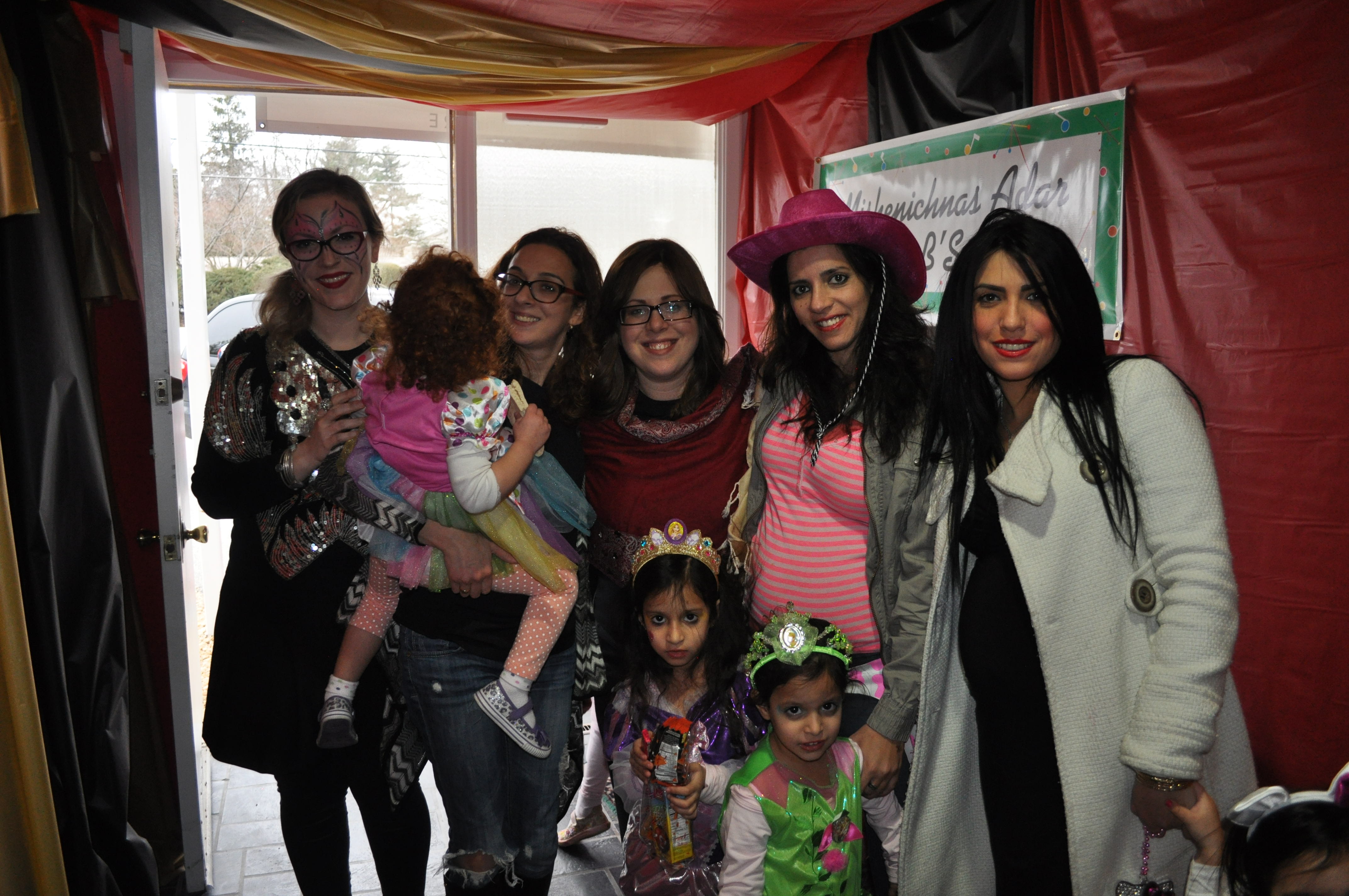
“Irrespective of your level of observance, when you are Israeli and your grandchild comes home in December and wants to put up a tree, the sense of loss is immense,” the banker says. “We feel that we are very fortunate to have made this affiliation with Chabad. It protected us from the consequences of not being affiliated.”
Rabbi Menachem Landa, who runs the Chabad Israeli Center in Palo Alto, California, says he meets Israelis every day grappling with their identity. “They come to the United States and they start questioning who they are. ‘I’m not in Israel anymore, I’m not an American Jew. So, what defines me?’” Landa says. The blasé security they enjoyed in Israel as members of the country’s majority is suddenly threatened with their new status as a minority in a foreign land. “Outside of their comfort zone, people really struggle with this question and are more open to learning about and identifying as a Jew.”
Most Israelis searching for identity fall into two groups, says Gurary. The first, mostly families of young children or those who were somewhat involved in traditional life, realize the need to actively seek out a Jewish connection to maintain their Jewish identity. The second group simply wants to associate with other Israelis socially and feel at home with others who speak the same language, enjoy the same music, and eat the same foods.
A Good Fit
For both groups, the average American Jewish community does not usually meet these needs. For those seeking a spiritual connection, the English-speaking Reform and Conservative Jewish traditions can seem foreign and odd to even the most secular Israeli. Israeli society has long maintained a dual identity as staunchly secular but religiously traditional, and modernized versions of Judaism have been slow to gain traction in the Holy Land.
“It is a strange phenomenon that in the United States, a completely secular Israeli feels the most commonality with religious Jews,” Wolfe asserts.
Chaya Gurary recalls meeting one Israeli in Baltimore who shared with her his first Yom Kippur experience in America. “The man was completely non-observant but knew that on Yom Kippur you go to synagogue,” she says. “He found the closest synagogue to his house, which was a Reform temple, and walked in. He was stopped at the front door for the requisite entrance fee. The Israeli was taken aback. He did not have any money on him, he explained, as it was Yom Kippur. He offered to pay afterwards but was denied entry to the synagogue. But he did get a glimpse of the sanctuary, where he saw a female rabbi singing songs he could not even recognize. He left, convinced it would be better for him to pray at home from memory.”
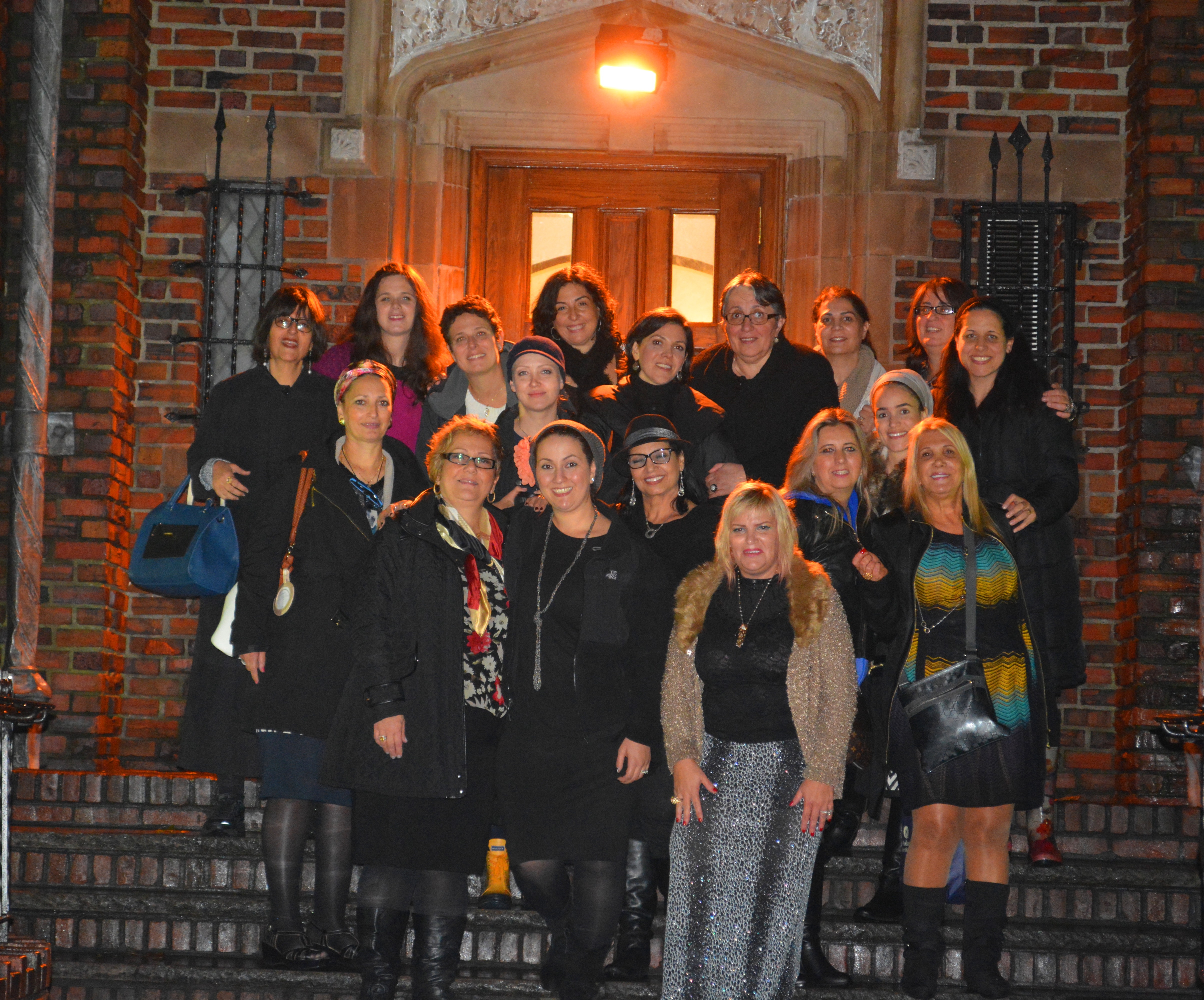
Another troubling trend involves Israelis who feel rejected by liberal American Jews who condemn Israel. While growing pockets of young American Jews now openly express anti-Israel sentiment, the rift is widened further by increased apathy towards Israel across all age demographics in the North American community.
But the gap between Israelis and religious Americans is also vast. Asher Sharvit grew up in France with Israeli parents. He describes his upbringing as “traditional-plus,” observing Shabbat and kosher and occasionally learning Torah. When he arrived in Baltimore to pursue a business opportunity in the local malls, he searched Google for a local Orthodox Shabbat service. “I walked there with my cousin, and when we got there we quickly realized that this was not what we were looking for.”
“The ambiance is completely different,” explains Sharvit, who now owns a chain of Italian coffee shops in the Baltimore region. “You go in and everyone says ‘shhh’ and prayers are over and you go back home.” The reserved, even sterile environment seemed foreign.
Bumping into Gurary at the mall, he was relieved to find a Chabad rabbi who could lead Israeli-style Shabbat services that felt like “home,” with familiar songs, rapid-fire Hebrew discussions, and a Kiddush where everyone lingered for awhile. Sharvit eventually moved nearer to the rabbi to allow him to fully participate in synagogue life at the Chabad Israeli Center.
The biggest stigma Chabad emissaries have to overcome is secular Israeli animosity toward the religious, a task that is more easily accomplished beyond Israel’s borders. “In Israel, religion and politics are intertwined,” explains Irit Levy, an Israeli mother of four in Los Angeles. “For many complex reasons—some legitimate, some not, there is a bitter rupture between religious and secular Jews, and each community stays mostly to itself.” Yet, says Levy, in America she found herself comfortable and welcome at Chabad despite her rabbi’s bushy beard, velvet kippa and his wife’s long skirts and wig. In Los Angeles, outward appearances just weren’t a big deal.
“If I take a look around my weekly Thursday night Torah class, these are about forty or fifty Jews who would never step foot in a synagogue in Israel,” says Gurary. “There, it almost seems like two nations in one country, but here the barriers between the religious and secular dissolve.”
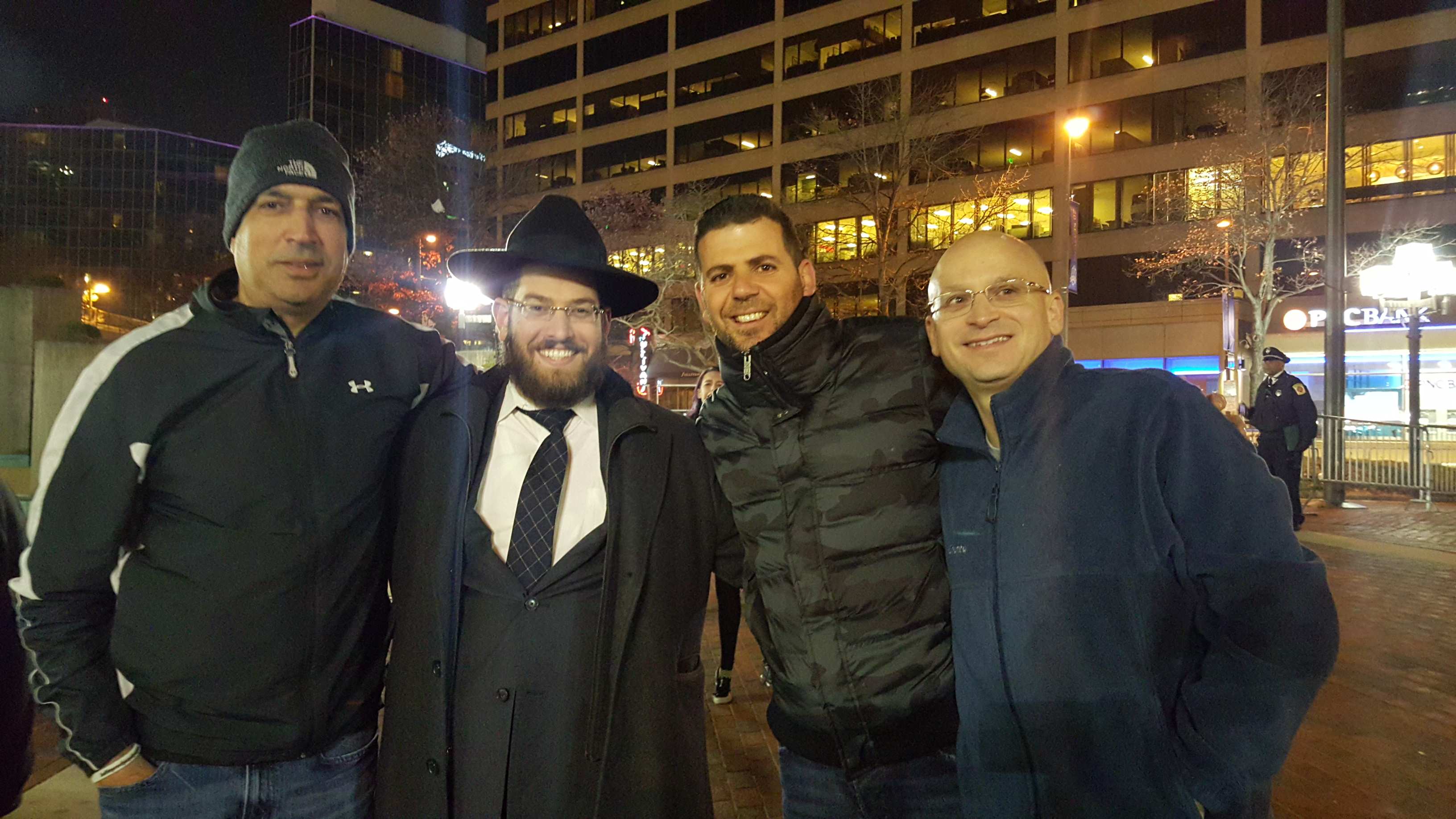
Once they get to know their Chabad representatives, Israelis will often rethink the negative stereotypes of religious Jews that they harbor. Landa is amused that they often believe their rabbi is the exception. “Here in Silicon Valley, I meet so many Israelis who would never interact with a religious Jew in Israel, and they are themselves surprised that we can be friends,” says Landa. “They all tell me that I am different than other Orthodox Jews, and that I am an anomaly for being so friendly and open.”
“Of course,” he adds wryly, “that is not true.” The irony persists in these Israeli Chabad centers, where Israelis are only too happy to sing the praises of their “exceptional” Chabad emissaries, but still maintain a certain bias against charedim (Orthodox) in general.
But Chabad community leaders take these eccentricities in stride and focus on the more important work of creating a spiritual oasis where Israelis can thrive. Here, rabbis catering to Israeli communities find less of an uphill battle than those working with unaffiliated American Jewry. Even the secular Israelis, says Rabbi Menachem Slavaticki who runs the Chabad Israeli Center of Greater Chicago, don’t need to be taught the basics of Jewish holidays or how to hold a siddur and read Hebrew. What they do appreciate “is gaining a deeper understanding.”
“They can pray every word during the services and at the Seder can sing every song,” continues Slavaticki. “What they are missing is a depth and connection to the material.” Chabad rabbis, who tend to lean heavily on Chasidut-inspired lessons, find Israelis eager and receptive to the uplifting nature of Jewish mystical texts—a task made even easier when taught from original texts with no translation needed.
“My Heart is in the East”
Though statistically, Israeli emigrants are likely to remain in their adopted countries insofar as they and their families have become successfully settled and integrated, a significant portion of Israeli-Americans profess their intention to return to the Holy Land. Levy, who has lived on the sunny West Coast with her family for seven years now and hopes to take her family “home” before her children get too Americanized, has no immediate plans to move. She readily quotes the famed words of medieval poet Yehuda Halevy, “My heart is in the East and I am at the edge of the West.”

For those who do make it back to the Holy Land, the spirituality and identity they found at Chabad abroad brings a renewed sense of belonging back in Israel. Gurary tells of one family who came to Baltimore from a secular kibbutz in Israel. While their former community was so disconnected from Jewish faith that they hosted a barbeque on Yom Kippur, the family found a home at Chabad and started coming often for Shabbat dinners. Soon, the father began binding tefillin and his wife starting using the mikvah. “After five years, they moved back to their kibbutz in Israel,” says Gurary. “Do they continue to keep all the mitzvahs that they took on here? I don’t know. But we have maintained our close relationship, and to this day they tell me that their time at Chabad renewed their neshama, their souls.”
With Chabad’s 995 centers dotting the Israeli landscape, maintaining a connection upon a family or individual’s return to the country can be as simple as the rabbi forwarding a phone number to his colleague. Israeli emissaries can build on the individual’s experience abroad and continue to nurture a relationship, especially since the religious issue is no longer the barrier-to-entry for them that it once was. Many will seamlessly integrate into established Chabad centers in Israel, while others find their own niche in other religious circles. But, even for those Israelis who revert to their old secular Israeli lifestyle, Slavaticki insists, the impact of the positive experience and exposure to Judaism at Chabad is immeasurable.
For Shalem, the effects of his years of hard work in cultivating a Jewish identity in his American born and bred children are finally coming to light. When he was driving around campuses looking at universities with his eldest daughter, Paz, she told him that she would not consider a school that did not have a Jewish center or synagogue nearby. “It was such a pleasure to hear her speak about how important being Jewish is to her.” Today, she is actively involved with the local Chabad at her university.
Shalem’s son, Dean, recently made aliyah, relates the proud father. He is currently serving in a combat unit in the IDF. “As we were headed to the airport on the day he made aliyah, the last stop before the plane ride was the Chabad rabbi’s home.” Dean developed a close relationship to the Gurary family over the years and wanted to get the rabbi’s blessing before his big journey to Israel. “It was such an emotional visit. I felt this explosion of gratitude in my heart for all that Chabad has done to help us get to that point.” Proud, secure in his identity, the second-generation Israeli-American Jew was going home.
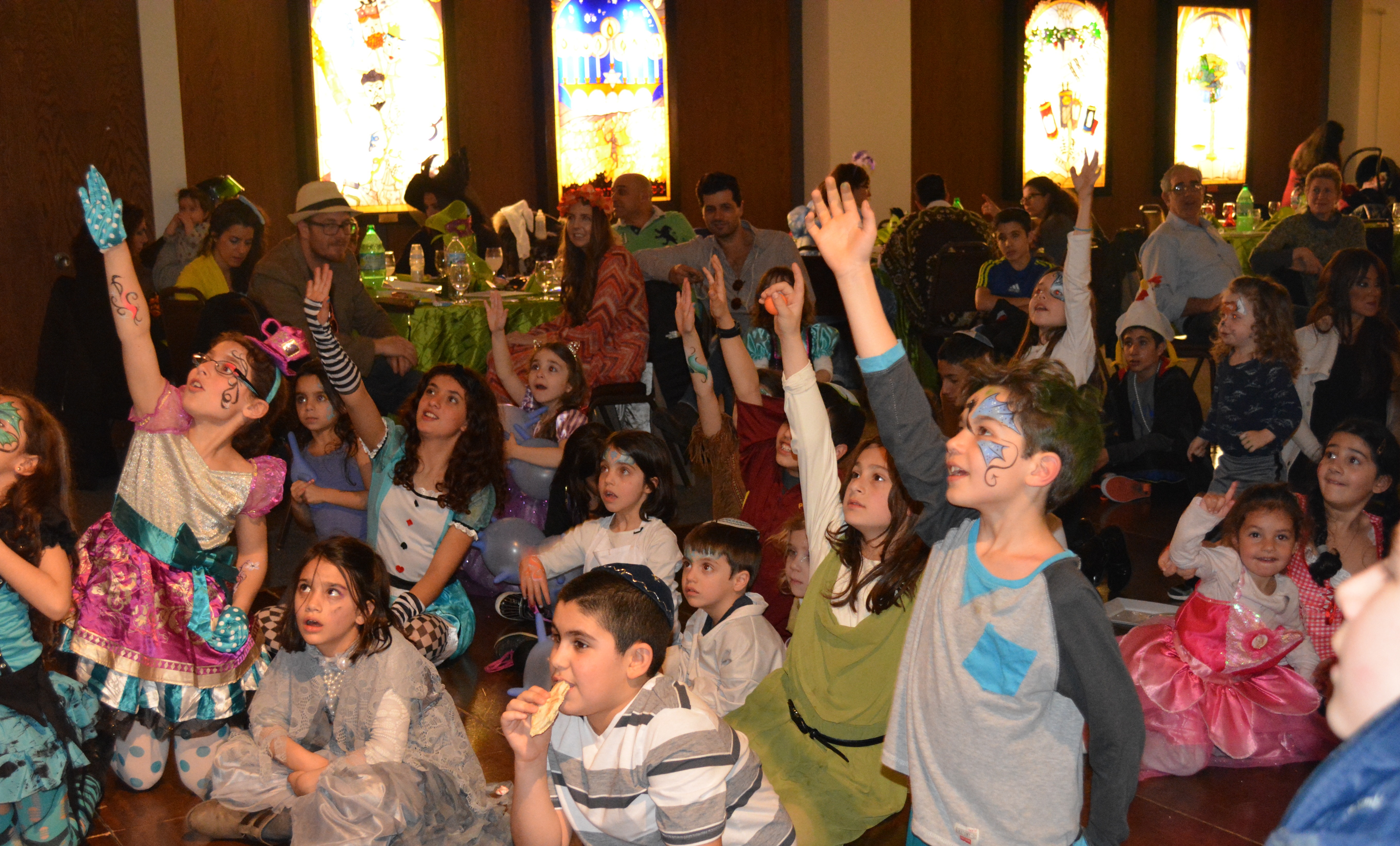
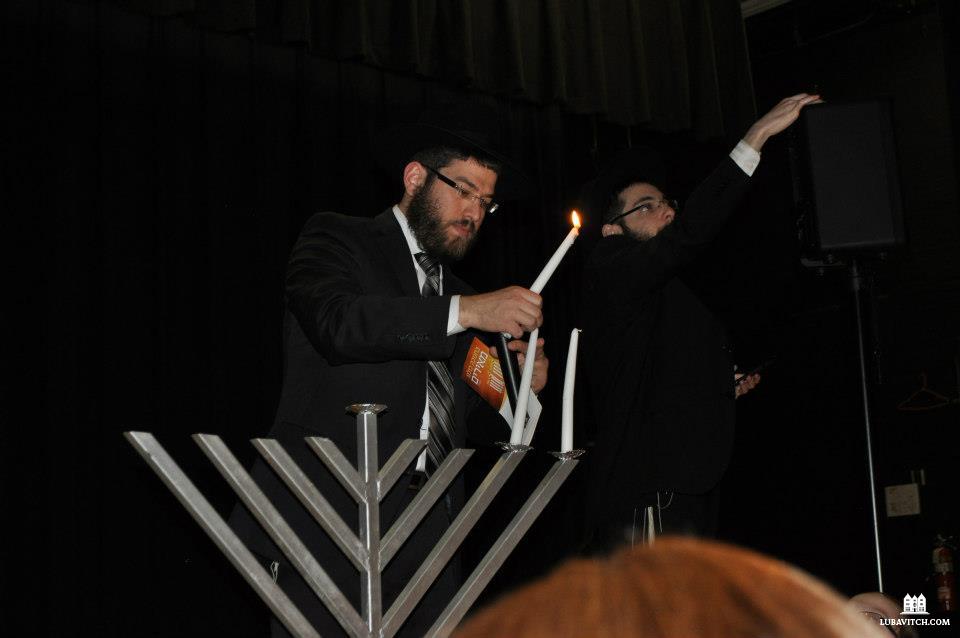
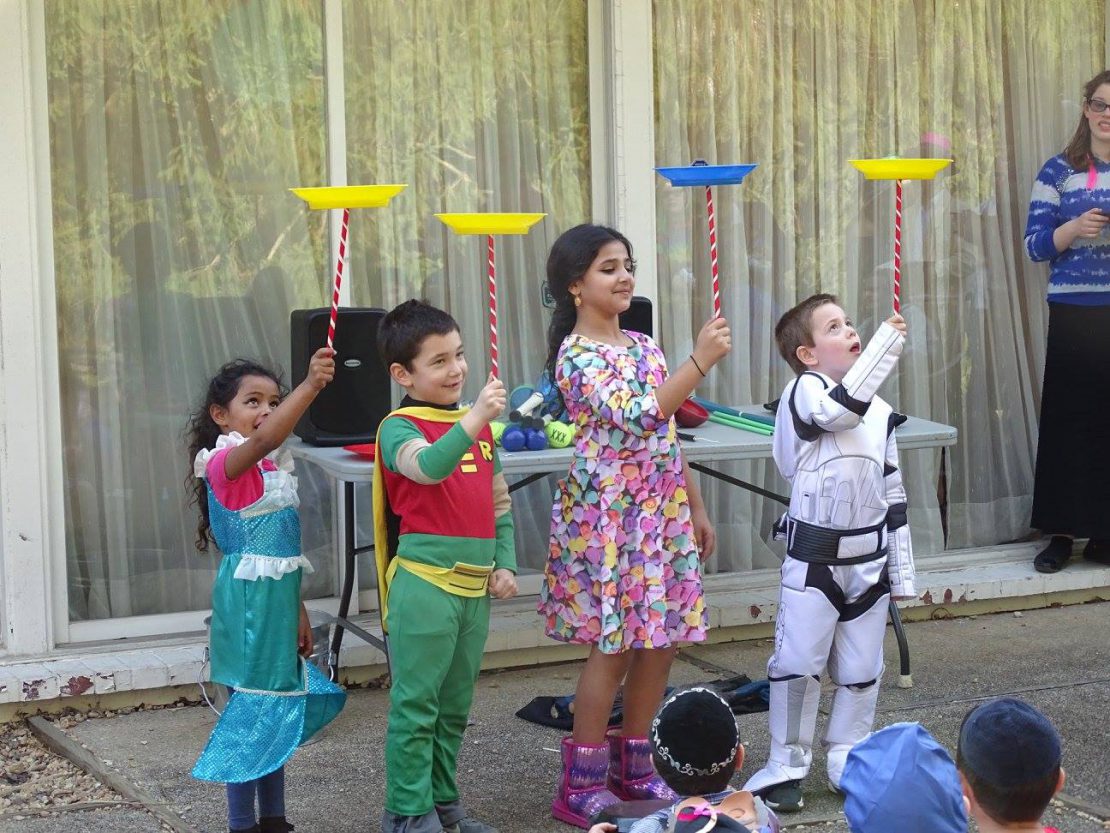
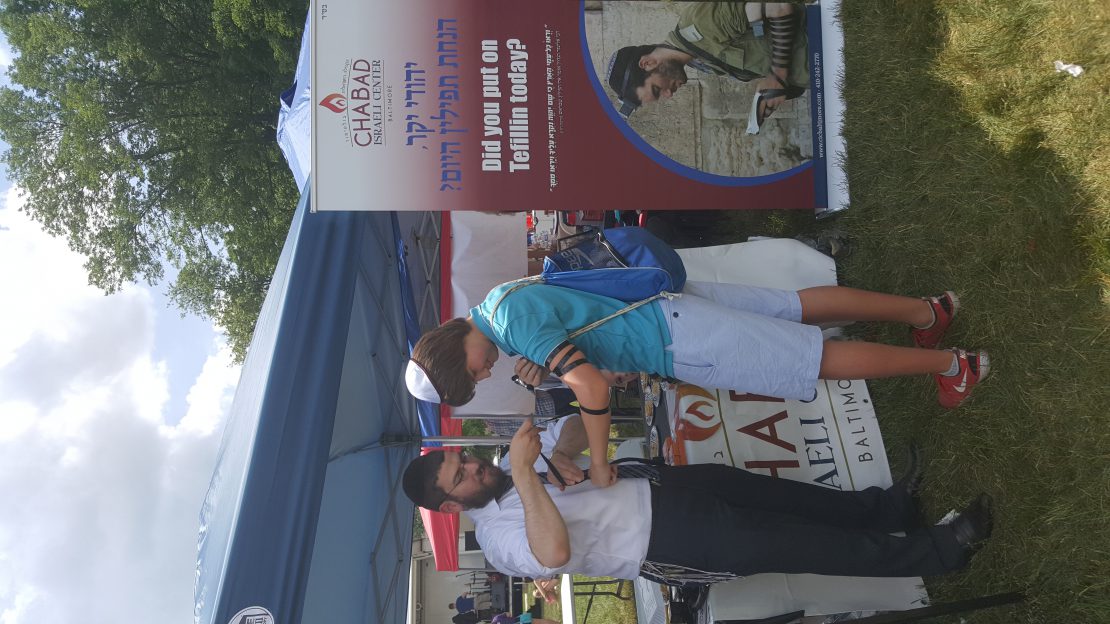
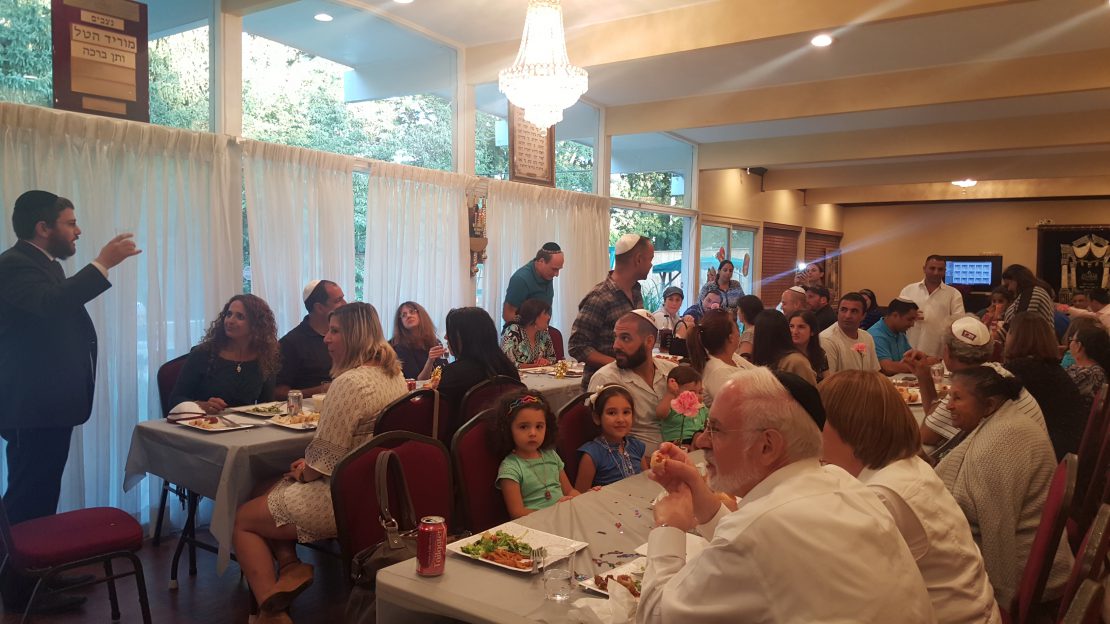
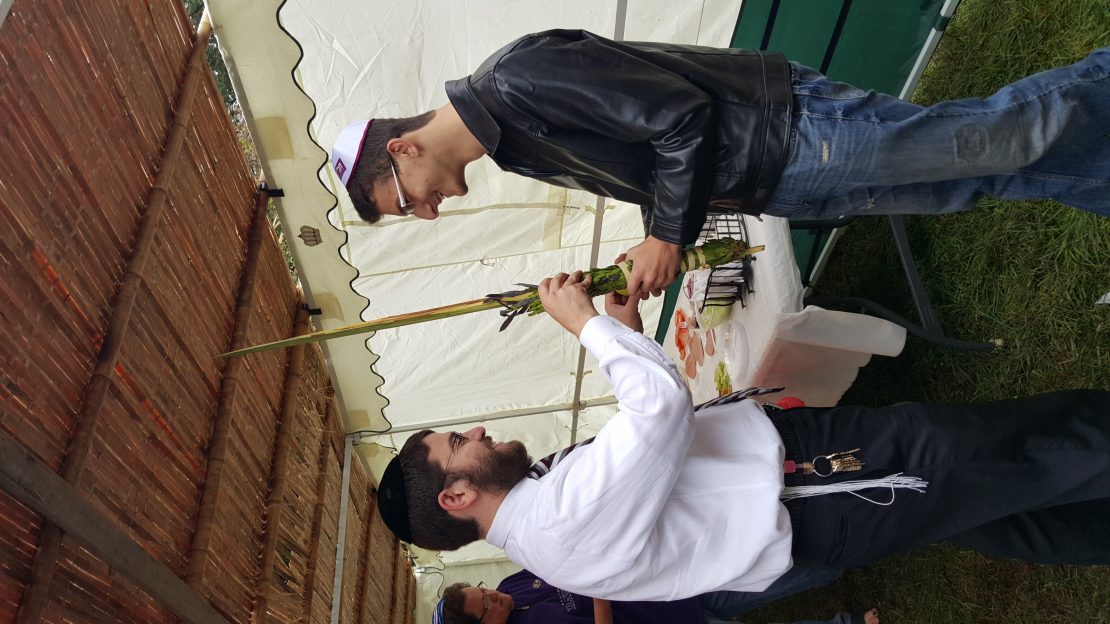
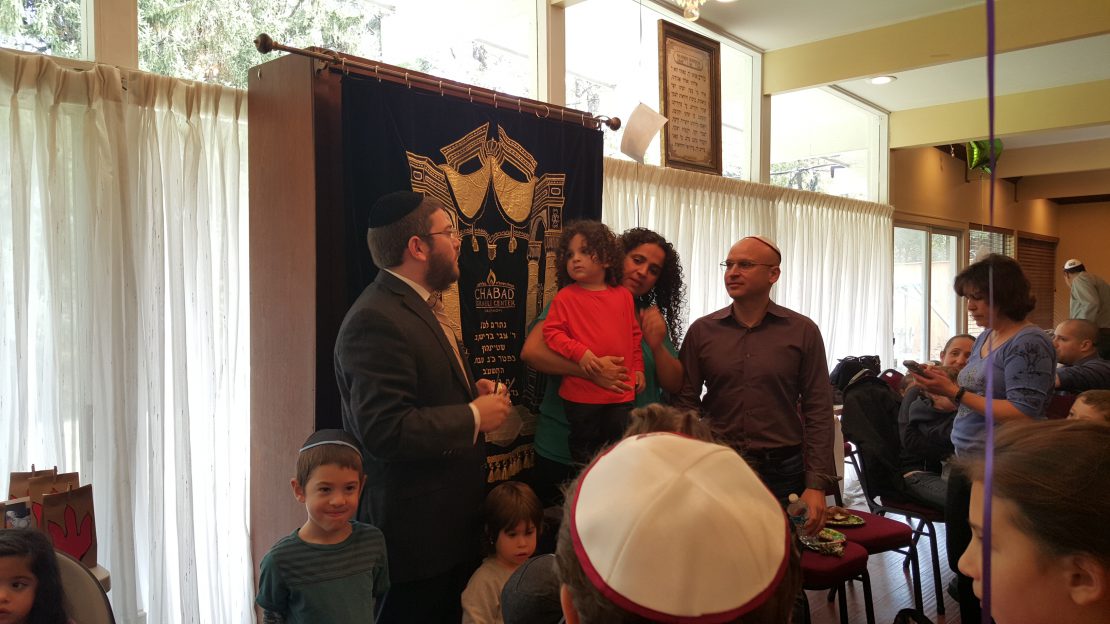
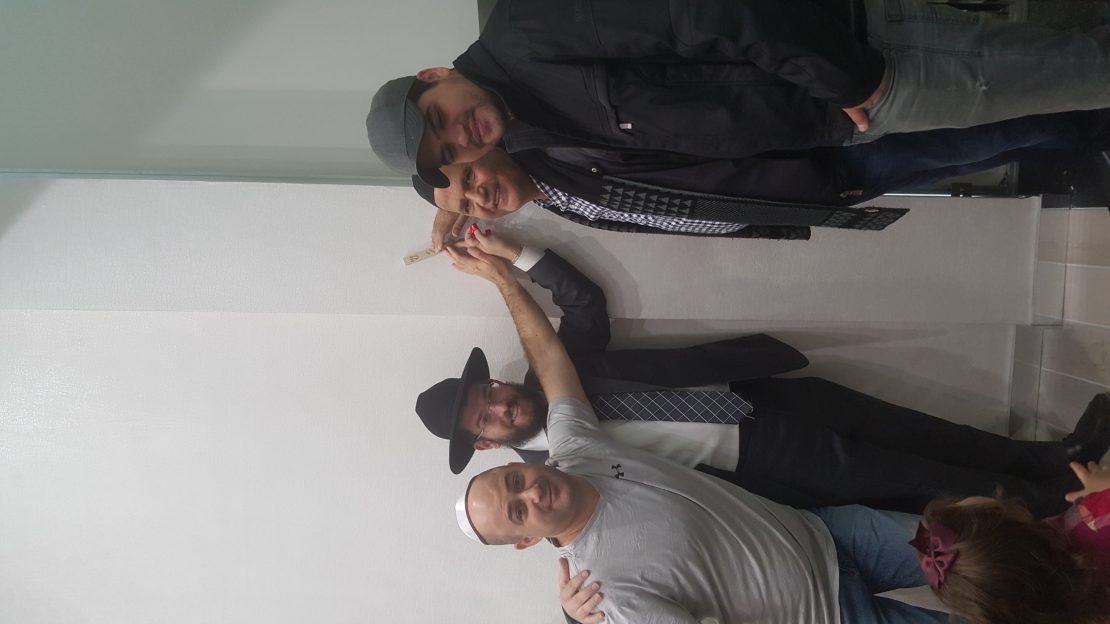
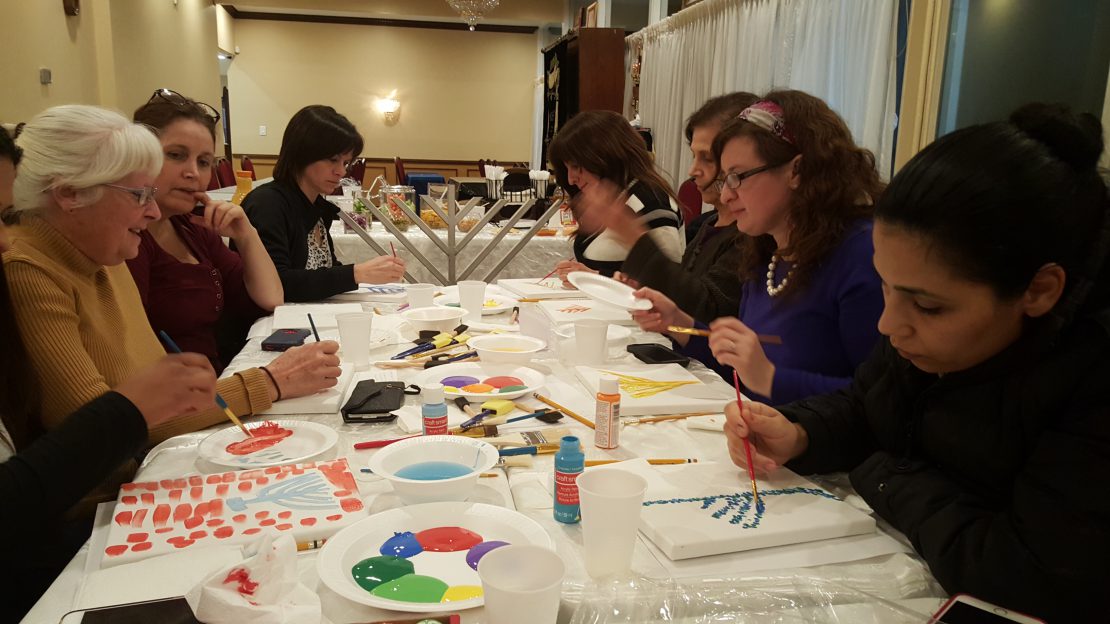
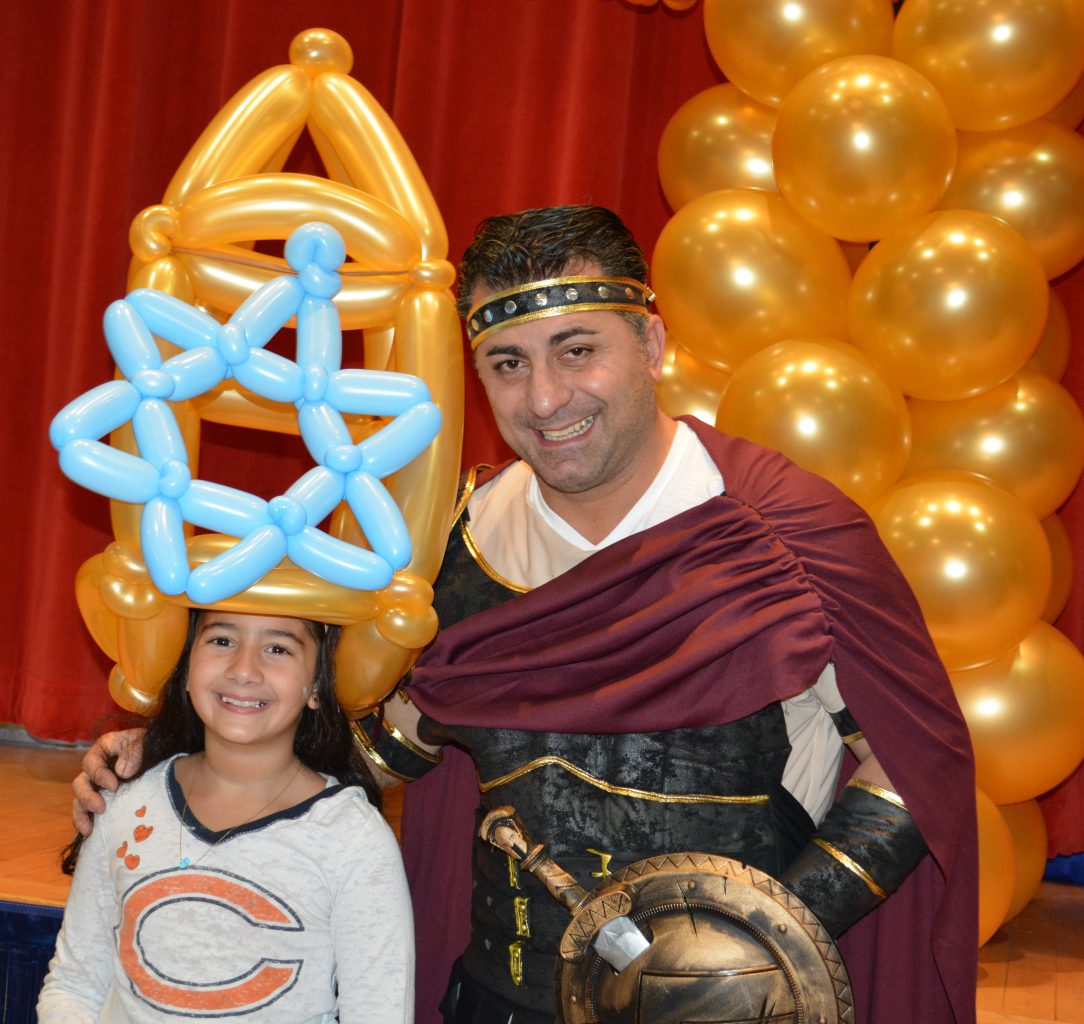
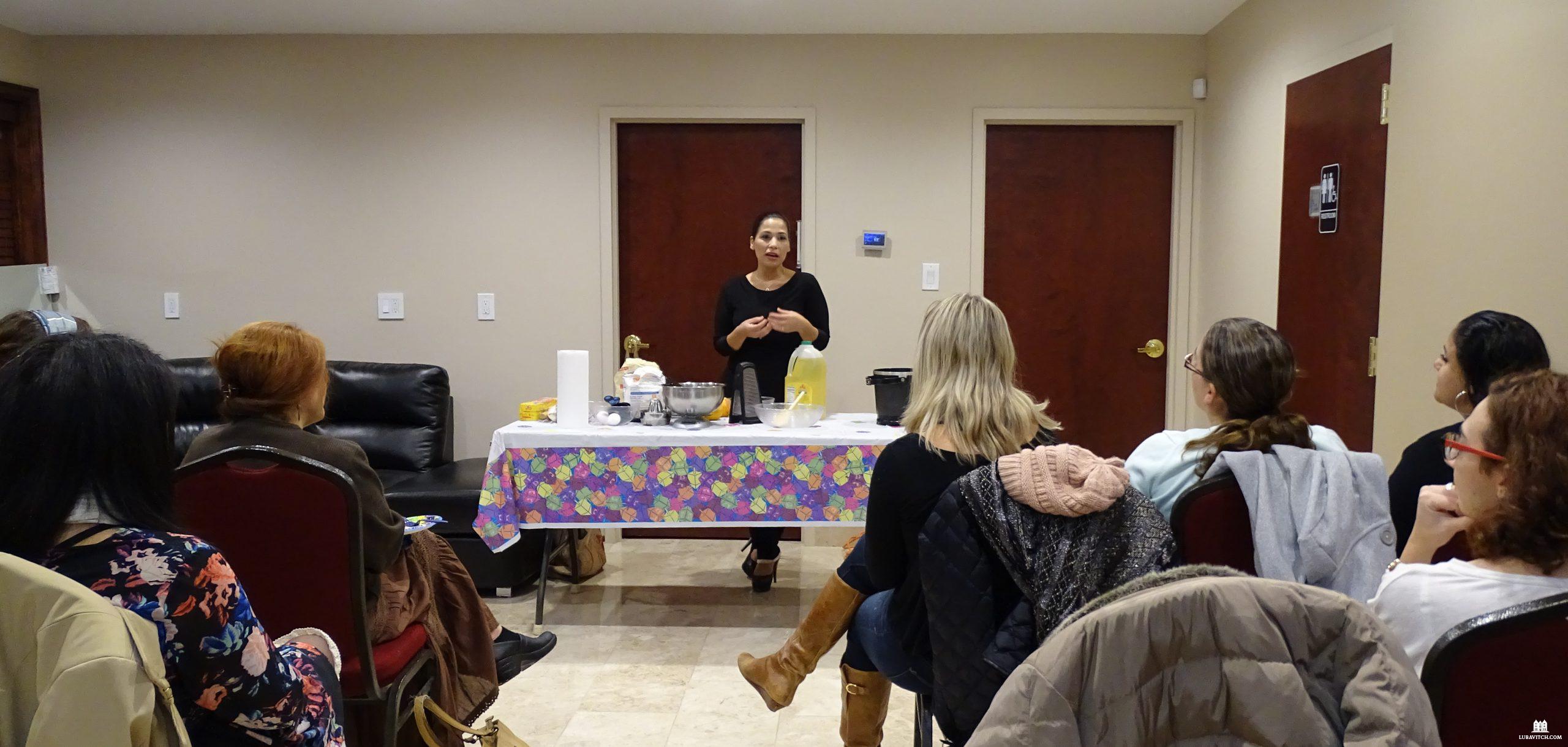
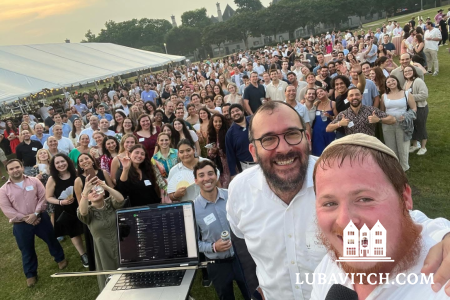
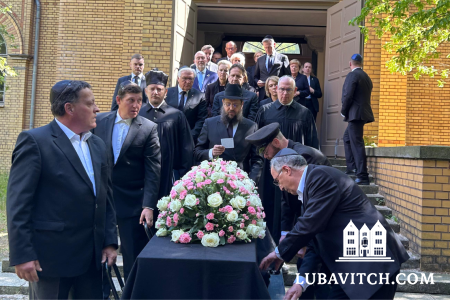
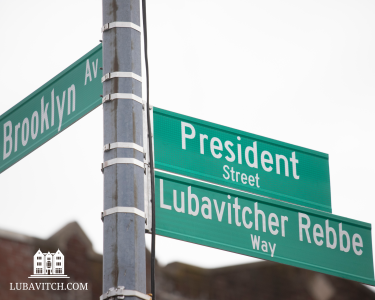
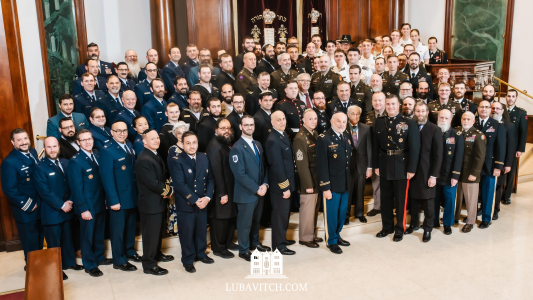
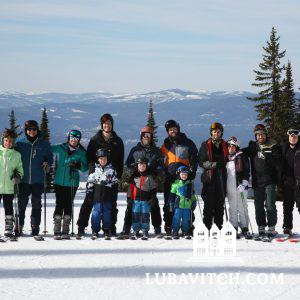
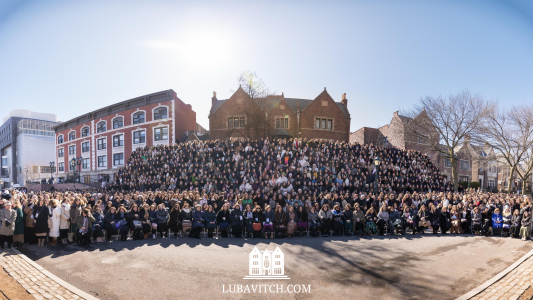
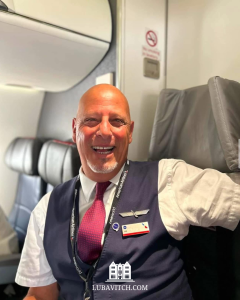
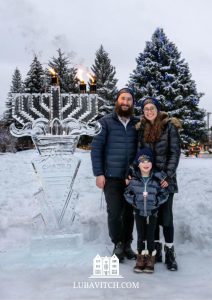

Be the first to write a comment.